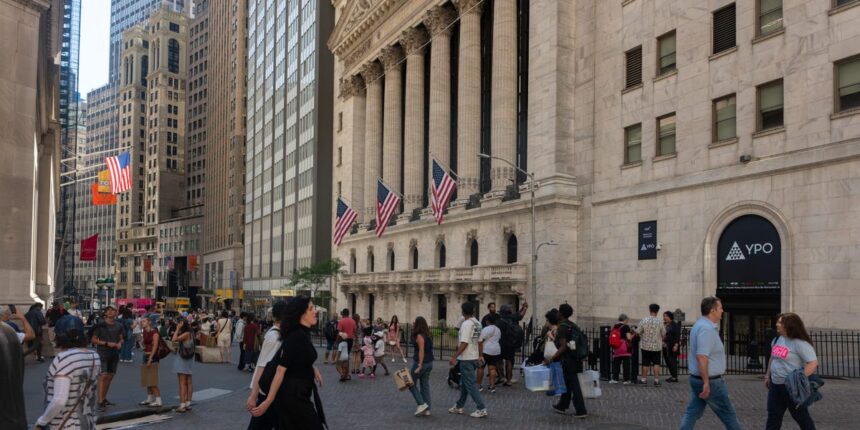The resilience of the U.S. economy over the past 15 years has provided a favorable backdrop for investors; however, this sustained growth may have created a significant blind spot in the market, according to financial experts. Despite having avoided a recession, many investors might be unprepared for an impending downturn.
Concerns have been rising in the labor market, where recent data indicates a slowdown in job creation. In the last four months, job growth has diminished significantly, and the unemployment rate has been gradually increasing. Job openings are also on the decline. Although unemployment claims remain low and the unemployment rate historically sits at a low level, Federal Reserve Chair Jerome Powell expressed concern on Tuesday about “meaningful weakness” in the job market.
Major stock market indexes, however, appear to be ignoring these warnings, consistently reaching new highs. Investor sentiment remains notably optimistic, as seen in a historically low reading of the CBOE Volatility Index and a “Highly Greedy” designation from CNN’s Fear & Greed Index regarding current market behavior. Tom Essaye, founder of Sevens Report Research, noted the pervasive theoretical understanding of recessions among investors, stating that although warnings are prevalent, a downturn has yet to materialize. He pointed to the quick recovery from the 2020 pandemic recession and the lack of severe fallout from rate hikes in 2023 and tariff discussions earlier this year.
Christine Sol, an investment strategist at SEIA, echoed that while she has been impressed by the economy’s resilience, she is alarmed by the growing complacency towards recession risks among investors. With the fastest rate hikes in history yielding no recession thus far, she pointed out the necessity for a balanced investment strategy: a “barbell approach” that incorporates both growth opportunities and low-volatility assets.
Meanwhile, on Wall Street, recession forecasts have largely disappeared, and bearish perspectives are noticeably absent. David Rosenberg, founder of Rosenberg Research, highlighted a reluctance among economists to predict future recessions, especially after being wrong in previous years. The prevailing belief is that the economy has successfully navigated challenges in recent years, leading many to assume that recessions are a relic of the past.
Essaye drew parallels between the current market sentiment and the dot-com bubble era of the late 1990s. While today’s enthusiasm for AI and technology investments is founded on tangible profits, there is a concerning level of complacency that could exacerbate the impact of any potential downturn. He cautioned that while such exuberance does not directly cause recessions, it might leave investors unprepared when economic conditions change.
In summary, while the U.S. economy has demonstrated remarkable resilience, there are signs that this optimism may be overshadowing important underlying risks. Investors are advised to remain vigilant and consider their strategies carefully in light of these potential challenges ahead.







